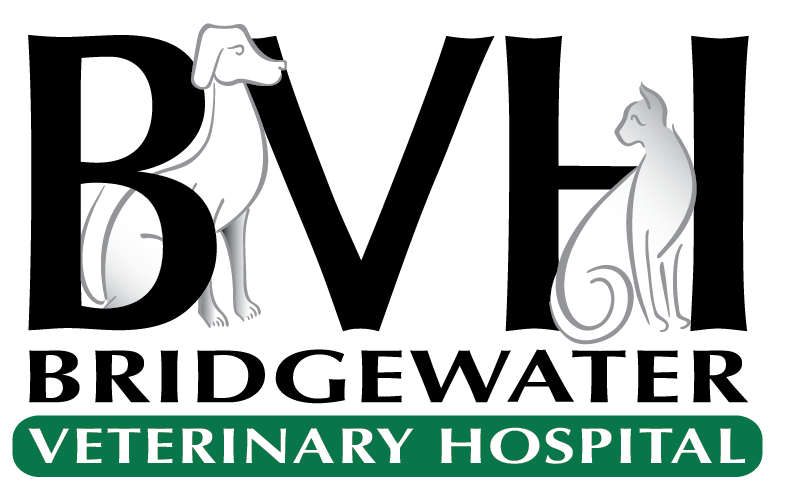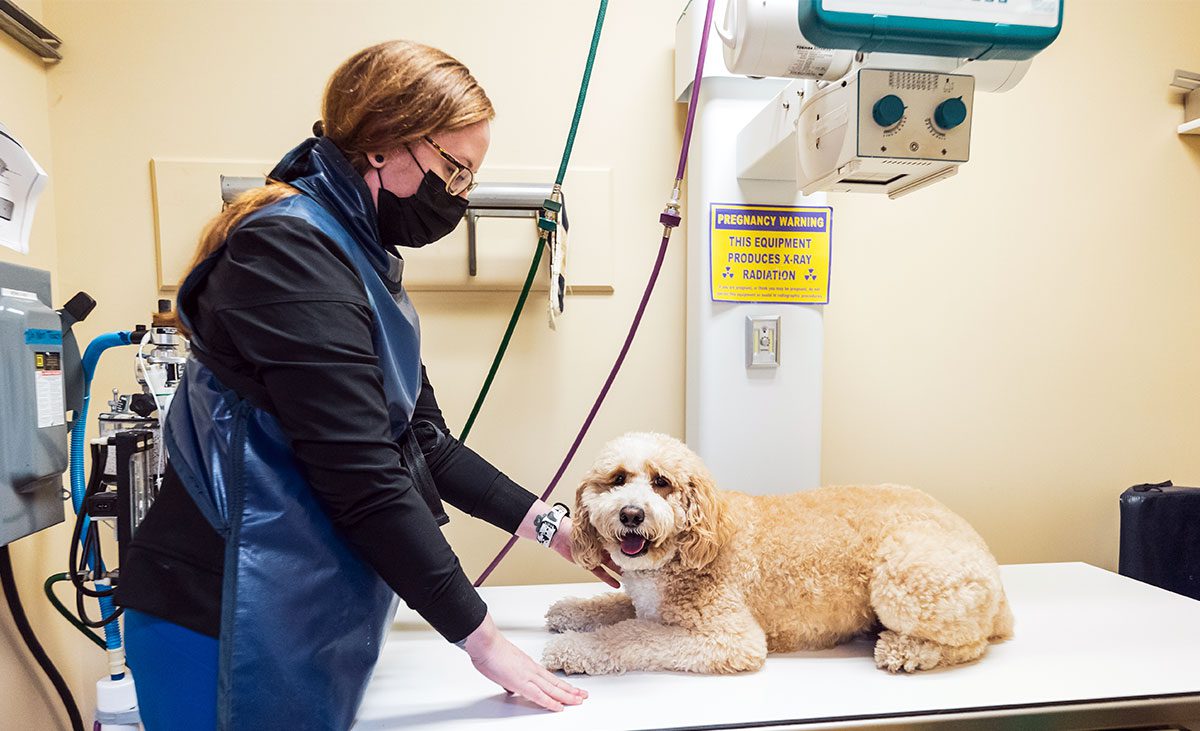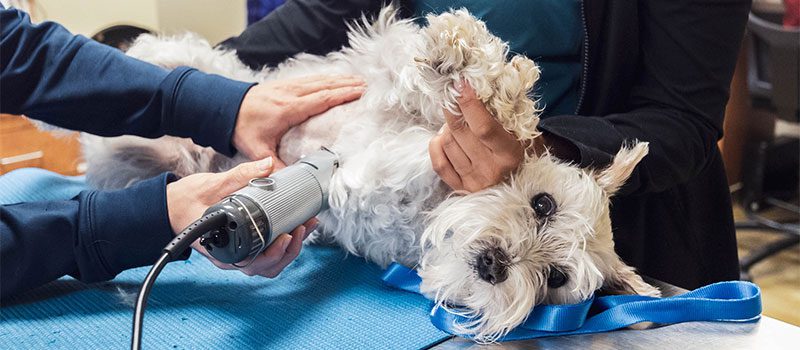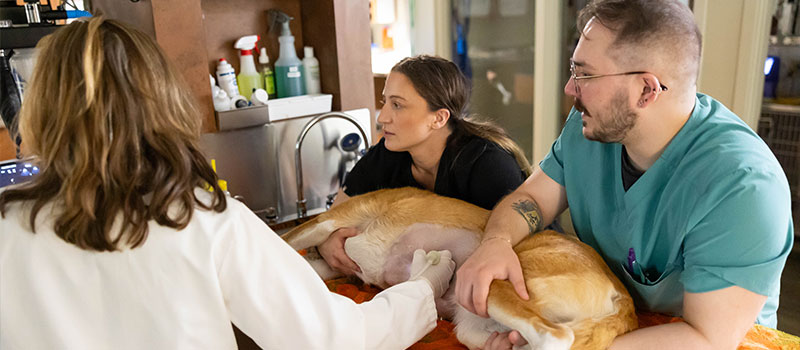We know how important it is for your pet to receive comprehensive care when it matters most. At Bridgewater Veterinary Hospital, we are equipped with cutting-edge technology to offer internal medicine and imaging services. These include radiology, ultrasonography, and echocardiography to create a fuller picture of your pet’s health. Dr. Johanna Frank has been a board-certified internal medicine specialist since 1998 and provides us a wide range of expertise in pet imaging. Based on Dr. Frank’s findings, our team can adjust your pet’s healthcare plan and provide appropriate treatment if necessary.
What to Expect
Prior to your pet’s procedure, please do not feed them for 12 hours or give them any water for a few hours beforehand. We will shave your pet for the ultrasound as fur interferes with the technology, however we will contain the shaving to the part of your pet’s body that is being examined. An ultrasound doesn’t typically require your pet to be placed under anesthesia, but a lighter sedative may be used in certain cases. Dr. Frank will consult with your veterinarian, and make recommendations for additional testing if necessary, and we will provide you with the results.
Abdominal Ultrasound
Dr. Frank uses ultrasound technology to check your pet’s internal organs and uncover potential disease or issues with their health. She will perform an abdominal ultrasound to assess your dog or cat’s liver, gall bladder, kidneys, bladder, spleen, adrenal glands, stomach, intestines, colon, pancreas, and lymph nodes. During your pet’s ultrasound, she will check for any signs of disease or illness including:
- Thickened intestines and evidence of gastrointestinal inflammation
- Cancer staging
- Pancreatitis
- Adrenal disease
- Enlarged spleen and splenic masses
- Prostate enlargement
- Bladder and kidney stones
- Kidney disease
- Enlarged liver and liver masses
- Gallbladder disease
Echocardiography
Dr. Frank can also perform a cardiac ultrasound or echocardiogram to evaluate the size and function of your pet’s heart. Depending on the pet, she will check for various indicators of disease or for the cause of symptoms your companion may be displaying. She may also request a chest X-ray to evaluate the lungs and further provide valuable information about your pet’s health. We will recommend an echocardiogram for your pet due to a variety of reasons, including:
- Heart murmurs (acquired and congenital)
- Enlarged heart on X-rays
- Coughing
- Trouble breathing
- Collapsing/fainting
- Unusual heart rhythms
- Hypertension (elevated blood pressure)
- Pre-anesthetic screen
- Pleural effusion or pericardial effusion (fluid around the lungs or heart)
- Heart based masses or right atrial masses/cancer screen
- Masses in the chest
- Diaphragmatic hernia




